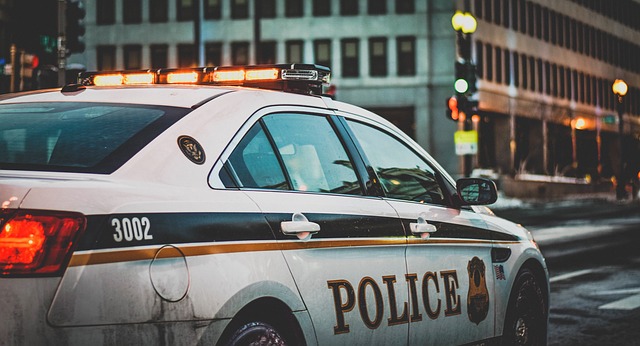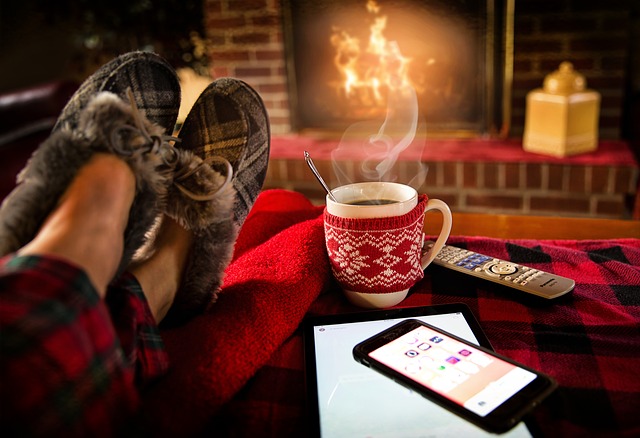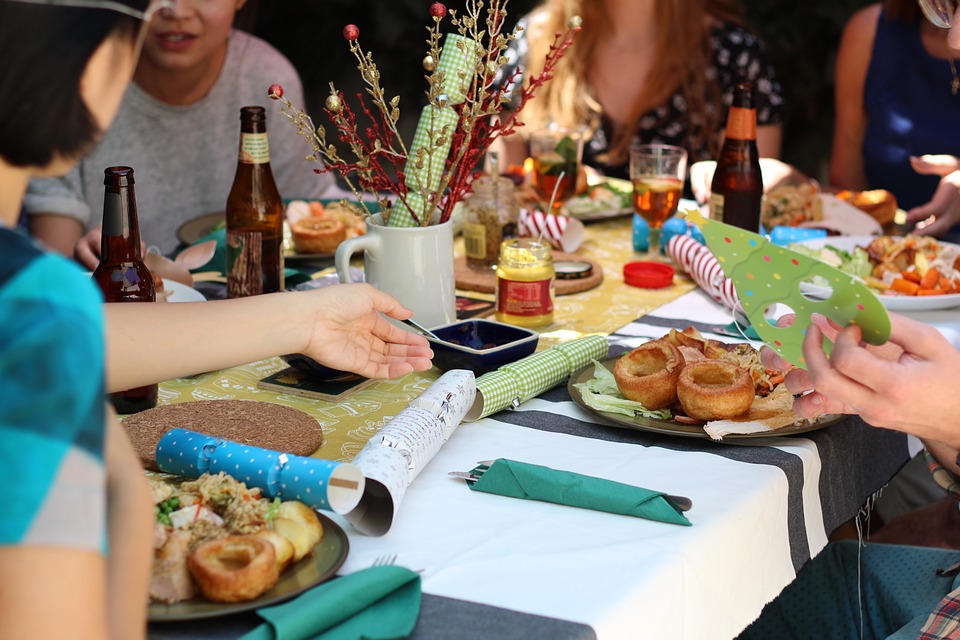Holiday decorations around the office are fun and festive, but they do pose safety hazards and can cause injuries. Whether your employees decorate the office for Christmas, Hanukkah, Kwanzaa, or New Years, insist on numerous safety precautions.
Avoid Trips and Falls
Place trees, gifts or displays in areas that are out of the way. If these items sit in a hallway or other busy area, employees could trip or fall over them.
Climb a Ladder
When hanging garland, snowflakes or streamers from the wall, windows or ceiling, use a ladder or step stool instead of a chair or desk. The right support helps you reach high places without pulling a muscle or falling.
Use Nonflammable Materials
All the holiday decor you use should be labeled as nonflammable or noncombustible. Check the label, too, to verify that your decorative drapes, lights and artificial greener are made of fire retardant material and safe for your employees.
Don’t Block Signs or Exits
Seasonal banners and other decor items may fit perfectly over signs or doors, but never cover signs or exit doors. Remember to keep fire equipment and sprinklers free from decorations, too.
Stay Away from Heat Sources
Always check the surroundings before you place decorations around the office. Items should sit away from vents, space heaters and other heat sources.
Attach Tall Items Securely
Tall trees and other display items are top heavy and may topple over if they’re bumped or even randomly. Secure tall decor items to the wall or ceiling with guy-wire.
Select Cool Burning Bulbs
Safety tested and cool burning bulbs in light strings or lamps are less likely to cause burns or fires. Check the label to ensure the bulbs are tested by an independent lab and verified to be safe.
Inspect Lights
Holiday lights add a festive look to your office, but always inspect lights before you plug them in. Toss strands with frayed or bare wires, broken or cracked sockets, or loose connections.
Take Care with Extension Cords
Extension cords are convenient but potentially hazardous accessories. Only plug in the recommended number of light string sets. Also, avoid tacking or stapling cords to the wall or floor, and tape or cover cords that cross the floor on walkways.
Ban Candles
An open flame is a big burn and fire hazard. Only allow electric lights and ban candles for safety.
Turn off Lights
At the end of the day or whenever the office is closed, switch off all the lights. You’ll save money and reduce a fire hazard.
The holidays can be more festive when you decorate the office. Use these safety tips to reduce injuries and keep your employees safe.
Read more

Agricultural workers are at a serious risk of injury or death when installing, climbing into, fumigating, entering, filling or emptying a silo. Because of the nature of the conditions present, workers may be exposed to hazards such as a lack of oxygen, toxic gases and grain entrapment.
To reduce worker risk of injury, properly train workers and remind them frequently of the following safety recommendations:
- Avoid entering a silo unless it is absolutely necessary.
- Complete tasks outside of the silo whenever possible.
- Have a coworker close by in case of an emergency.
- Never smoke or cause sparks near a silo, especially if the air humidity is low.
- Wear respiratory protection when appropriate.
- Stand at a safe distance when filling or emptying a silo.
- Use an approved fall restraint system and harness when climbing a silo.
- Ventilate a fumigating silo before entering.
- Conduct regular safety inspections of silos.
For more farm and ranch safety tips, contact Scurich Insurance today.
Read more

Each year, thousands of businesses, schools and other establishments are mailed suspicious items (e.g., unmarked packages) or are the target of bomb threats. These threats can be made via phone calls, letters, social media channels, emails or other similar means.
Bomb threats and suspicious items are often used to cause alarm, panic, disruption or, in extreme cases, direct harm. However these threats are made, organizations of all kinds need to take them seriously and know how to respond appropriately.
What to Do If You Receive a Bomb Threat
Businesses often wrongly assume they aren’t at risk of a bomb threat. However, the truth is that no organization is 100 percent safe from malicious attacks or threats, making proper preparation all the more important. In the event that your organization receives a bomb threat – whether it be over the phone, via email or another means – follow these procedures.
Threats Made Over the Phone
- Remain calm. Keep the caller on the line for as long as possible, and don’t hang up even if the caller does.
- Signal or pass a note to another staff member, instructing them to notify the authorities. If this isn’t possible, call 911 from another phone after the caller hangs up.
- Document as much information about the call as possible. Details related to a caller ID number, the wording of the threat, the time of the call, background noises on the caller’s end, and the tone and inflection of the caller can all aid investigators. If possible, ask questions to infer specific details about the threat itself, including:
- Who is making the threat and where they are calling from
- The type of device and when it might go off
- What the device looks like
- Where the device is located
- Who the target is
- Record the call if possible.
- Be available for interviews.
- Follow any instructions from facility supervisors and local authorities. These individuals will also provide specific guidance related to facility lockdowns, searches or evacuations.
Threats Made Via Email, Online Platforms, the Mail or Other Source
- Call 911.
- Preserve the threat. If the threat is made online, take a screenshot. If the threat is made through the mail, store it in a safe place and handle it as minimally as possible.
- Note where the threat was found, who found it and when they found it.
- Wait for further instructions from the proper authorities.
In the event of a threat, staff members should avoid using two-way radios, cellular phones or any other electronics, as signals from these devices could potentially detonate a bomb. In addition, you should avoid activating alarms or evacuating the building until the proper authorities evaluate the threat. Law enforcement officials will direct the evacuation if one is necessary.
What to Do If You Find or Receive a Suspicious Item
In general, a suspicious item is any item – like a bag or package – that is believed to contain explosives, improvised explosive devices or hazardous materials. When it comes to identifying these items, you should watch out for unexplainable or unusual wires, electronics, sounds, vapors, mists or odors.
It is not uncommon for establishments to find or receive suspicious items and, while they may end up being harmless, it’s good practice to be overly cautious. As a good rule of thumb, any item that is Hidden, Obviously suspicious and not Typical (HOT) should be deemed suspicious.
In the event that your organization finds or receives a suspicious item, you should:
- Remain calm.
- Avoid touching, tampering or moving the item.
- Notify the proper authorities and your facility supervisor. Follow any and all of their instructions carefully.
Plan Ahead and Stay Safe
When it comes to bomb threats and suspicious items, every situation is unique. Typically, facility supervisors and law enforcement officials will be in the best position assess the situation, determine if a real risk is present and provide instruction on how to respond.
For even more protection, businesses should review guidance provided by the Department of Homeland Security and the Department of Justice. Doing so can help you better prepare for potential threats. For more workplace safety advice and risk mitigation tips, contact Scurich Insurance today.
Read more

As winter ends and temperatures begin to rise, the accumulating water from melting snow and ice leaves your home susceptible to damage. Protect your home ahead of time to minimize your risk.
Use these four tips to help reduce your home’s risk of snowmelt damage:
- Clear snow from your home’s foundation. Shovel snow away from your home, including stairwells, window wells, downspouts and doors to help prevent water from seeping in through cracks.
- Maintain your roof and gutters. Any heavy snow that has accumulated on your roof should be cleared away to avoid water damage. Keep your gutters clear of debris to avoid ice dams—melted snow that refreezes at night, causing gutter clogs.
- Ensure proper drainage. Make sure your downspout drains away from your home, and keep any street storm sewer drains clear of snow to prevent buildup and freezing.
- Check your sump pump. Test to see that your sump pump is in good working order in case your home experiences flooding. If you notice any small leaks, take care of them before they become a bigger hazard.
Take extra precautions to keep your family safe from potential fireplace damage. If you burn fires often, consider installing new smoke and carbon monoxide detectors in your home.
Read more

The U.S. Fire Administration states that 75 percent of confined home heating fires occur in the chimney and flue of your fireplace. Performing simple safety measures and maintenance on your fireplace will ensure your family and home stay safe.
Here are some fireplace safety tips to consider:
- Keep it clear. Clear out any debris from the fireplace and keep all flammable items like furniture, blankets and papers a safe distance away at all times.
- Inspect the chimney. Have a certified chimney specialist inspect and clean your chimney annually to reduce the risk of fire and carbon monoxide buildup.
- Start the fire safely. Never burn charcoal or use lighter fluids to light the fire in your home, as they can cause deadly fumes and the potential for explosion.
- Don’t overload the fire. Overloading—putting in more wood, paper and other ignitable materials than necessary—can overheat the walls or roof of your home.
- Keep children away from the fireplace. Give warning about the dangers of fire to deter curiosity, and consider installing a gate around the fireplace to prevent kids from getting too close.
- Put it out. Before leaving your home for the night or going to sleep, ensure the fire is completely out first.
Take extra precautions to keep your family safe from potential fireplace damage. If you burn fires often, consider installing new smoke and carbon monoxide detectors in your home.
Read more

Businesses host parties for a variety of reasons, including the holidays and organizational accomplishments. While these events are fun, team-building opportunities, they can create a number of risks for the hosting company. In fact, in the event that an employee is injured at the party or causes property damage, the employer is usually the one held responsible. This can lead to costly litigation and reputational harm that can affect a company for years.
To avoid major losses, it’s not only important for employers to secure the right insurance coverage for every individual risk, but to also have a thorough understanding of common holiday party exposures.
Alcohol
Anytime you provide alcohol to individuals in a non-commercial manner, you are considered a social host. This is important to note, as a social host may be responsible for the acts of their guests should their conduct create harm. These risks are compounded when alcohol is served, and employers may be liable for damages following a drunken driving accident or similar incident.
While the best way to reduce alcohol liability risks is to avoid serving it altogether, this isn’t always feasible. To promote the safety of your employees and guests at company-sponsored events, consider the following:
- Hold the event off-site at a restaurant or hotel.
- Provide plenty of food and non-alcoholic beverages throughout the night.
- Serve drinks to guests rather than offering a self-serve bar. Limit the amount of alcohol you will serve. Require servers to measure spirits.
- Set up bar stations instead of having servers circulate the room. Place table tents at each bar that remind employees and guests to drink responsibly.
- Don’t price alcohol too low, as it encourages overconsumption. Offer a range of low-alcohol and alcohol-free drinks at no charge.
- Close the bar an hour before the scheduled end of the party. Do not offer a “last call,” as this promotes rapid consumption.
- Entice guests to take advantage of safe transportation options by subsidizing taxis or promoting a designated driver program.
Marijuana Consumption
Similar to alcohol use, marijuana and other drug consumption can directly affect the safety of your party guests. In fact, according to the most recent federal data, 44 percent of vehicle crash deaths can be linked to drug-impaired driving, up from 28 percent a decade earlier.
Marijuana contains hundreds of chemicals, many of which act directly on the body and brain. Individual sensitivity to marijuana can vary, but the general effects include the following:
- Dizziness, drowsiness, light-headedness, fatigue and headaches
- Impaired memory, concentration and ability to make decisions
- Disorientation and confusion
- Suspiciousness, nervousness, anxiety, paranoia and hallucinations
- Impaired motor skills and perception
- Dry mouth, throat irritation and coughing
- Increased heartbeat
These health effects can last long after an employee smoked, increasing the potential for accidents or major health concerns. In addition, federal, state and local laws may prohibit marijuana use in certain areas, making it all the more important to educate employees on behavior expectations.
To keep your party guests safe and avoid any liability concerns, consider making clear rules for marijuana use at your party. Remind employees that even though they are at a social event, they are still attending a work function and workplace policies on the use of marijuana still apply.
Workplace Harassment and Discrimination
Even when holding company-sponsored events off-site, employers are expected to enforce their workplace policies and safeguard their employees. In particular, employers must pay extra care to prevent issues of harassment and discrimination at their events, as they can lead to employment claims and costly litigation.
To help keep employees safe at company parties, employers should ensure all of their policies related to harassment, violence, discrimination and code of conduct are up to date and account for company-sponsored events. Policies should be specific as to what is and is not tolerated, and redistributed them as thoroughly as possible.
In addition, employers should:
- Consider making the event a family party where employees can bring their spouse, significant other, children or a friend. This can help deter inappropriate behavior.
- Keep event themes and decorations appropriate. Parties should be neutral and not make reference to specific religions or beliefs. In addition, plan your party on a day that does not conflict with religious holidays.
- Consider having just one entrance to your party. This will allow you to control who enters the venue and ensure that uninvited guests do not attended.
- Have supervisors and managers chaperone the event, looking closely for inappropriate behavior. Hire third-party security personnel as needed.
- Avoid making attendance for company-sponsored events mandatory.
Food Exposures
Food is a staple of many company-sponsored events, and can actually be a useful way to keep party guest sober and limit alcohol-related liability (starchy foods can help reduce the absorption of alcohol). However, when serving food, there are a number of risks employers should consider.
For instance, employers need to be wary of potential food allergies. In the event that a guest gets sick from the food, they could sue the employer for negligence.
To help protect against this, employers should ask party guests to disclose any of their allergies, either in their RSVP or by contacting the event coordinator directly. In addition, you should specify what ingredients are in every food item, both on the menu and on display cards near the food itself.
For added protection against illnesses, it’s critical that employers promote safe food preparation and handling practices. Moreover, when working with a third-party provider, employers should do their due diligence to ensure they are securing reputable vendors.
Property Damage
Property damage can occur at just about any kind of party, even small, company-sponsored events. As the host, it’s your job to ensure your guests remain safe, behave appropriately and respect the venue and its contents.
To do so, employers should:
- Set behavior expectations before the party.
- Have supervisors and managers chaperone the event, looking closely for inappropriate behavior. Hire third-party security personnel as needed.
- Remove valuable items from the party area wherever possible. Make sure any areas that you don’t want guests to enter are locked, roped off or secured in some way.
- Review your liability insurance and know what it covers.
- Ensure the venue is equipped to handle the number of individuals invited to the party.
Secure the Coverage You Need in Advance
Even if you take all the appropriate precautions, incidents can still occur. As such, it’s important for all organizations to secure adequate insurance.
Each business is different, and may require additional policies to account for all of their exposures. Contact Scurich Insurance today to learn about your coverage options when it comes to hosting a party.
Read more






